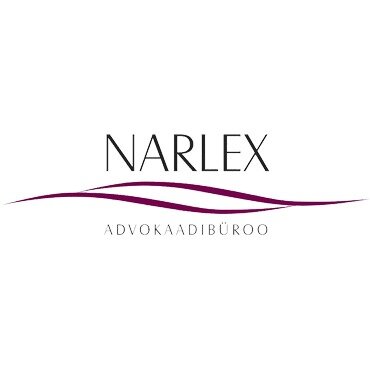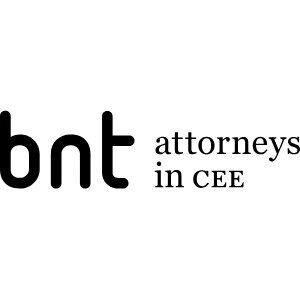Best Conveyancing Lawyers in Tallinn
Share your needs with us, get contacted by law firms.
Free. Takes 2 min.
Free Guide to Hiring a Real Estate Lawyer
List of the best lawyers in Tallinn, Estonia
About Conveyancing Law in Tallinn, Estonia
Conveyancing in Tallinn, Estonia, refers to the legal process of transferring ownership of real estate from one person or entity to another. This process involves a series of checks, documentation, and legal procedures to ensure that property rights are properly transferred and registered. In Estonia, property transactions are regulated by both national laws and municipal regulations, making it important for parties involved to understand the legal framework governing real estate transfers. Tallinn, as the capital city, has a dynamic real estate market influenced by its unique urban regulations and customs.
Why You May Need a Lawyer
While some aspects of conveyancing in Estonia are straightforward, there are several situations where a lawyer's assistance is strongly recommended:
- Complex property ownership arrangements, such as shared, inherited, or company-owned properties
- Uncertainties about property boundaries or rights of way
- Issues with property title or unresolved encumbrances, such as mortgages or liens
- Disputes between buyers and sellers during negotiations or after signing preliminary agreements
- Drafting or reviewing contracts and ensuring all legal obligations are met
- Managing transactions involving foreigners or non-residents who may not be familiar with local law
- Ensuring compliance with anti-money laundering regulations during the transaction
A qualified conveyancing lawyer can provide peace of mind by minimizing legal risks and protecting your interests throughout the transaction process.
Local Laws Overview
Conveyancing in Tallinn is governed primarily by the Law of Property Act, Land Register Act, and the General Part of the Civil Code Act. All real estate transactions must be executed in notarial form and recorded in the Land Register, which serves as the definitive record of property rights. Key elements include:
- Notarial Procedure: Property transactions must be conducted in the presence of a notary, who verifies identities, ensures informed consent, and drafts the necessary deeds.
- Land Register: The Land Register contains details of property ownership and encumbrances. Once a transaction is notarized, the change in ownership must be registered to take legal effect.
- Pre-Agreements: Parties may sign a preliminary agreement, which is legally binding if properly executed but does not transfer ownership.
- Due Diligence: Buyers should conduct due diligence, including verifying ownership, checking for encumbrances, and confirming zoning or planning requirements with the local authorities.
- Foreign Ownership: Non-residents may generally acquire Estonian property, but certain restrictions may apply, especially regarding land in specific zones or areas of strategic importance.
- Transaction Taxes and Fees: Usually, buyers and sellers agree on who covers notary fees and state duties. Estonia does not charge transfer tax, but other charges may apply.
Frequently Asked Questions
What documents are required for a property sale in Tallinn?
Essential documents include identity documents, the title deed, land register extract, energy performance certificate, and any documents related to encumbrances or rights of third parties. The notary will usually specify all required paperwork.
Is it mandatory to use a notary in property transactions?
Yes, Estonian law requires all property transactions to be notarized. The notary prepares the sale contract, verifies the details, and ensures lawful registration in the Land Register.
Can foreigners buy property in Tallinn?
Yes, foreign nationals and companies can generally purchase real estate, with some exceptions for agricultural or protected land. Additional checks may apply for non-EU buyers.
How is ownership officially transferred?
Ownership is transferred when the notarial deed is signed and the new owner's rights are entered into the Land Register following submission by the notary.
What are the typical fees and taxes involved?
Main costs include notary fees based on property price, state fees for Land Register registration, and possible legal counsel fees. Estonia does not impose a transfer tax for residential property.
What if there is a mortgage on the property?
Any registered mortgage must be resolved before or during the transaction, usually via loan repayment from sale proceeds and confirmation by the creditor to be registered in the Land Register.
How long does the conveyancing process take?
If all documentation is in order, the process can take from a few days to a few weeks, depending on the complexity, lender involvement, and Land Register processing times.
What happens if disagreements arise after the contract is signed?
If disputes cannot be resolved amicably, parties may seek mediation or bring the matter before an Estonian court. Legal grounds and evidence will determine the outcome.
Is it possible to buy property remotely?
Yes, remote transactions are possible with a power of attorney and, in some cases, via e-notary services if electronic identification is available.
Can I conduct due diligence myself, or do I need a lawyer?
While some information is publicly available, a qualified lawyer can provide a comprehensive review, flag potential issues, and guide you through regulatory requirements.
Additional Resources
Those seeking further information or assistance may consider the following entities:
- Estonian Land Board (Maa-amet) - Property registers, maps, and land information
- Estonian Chamber of Notaries - List of licensed notaries and procedural guidelines
- Estonian Bar Association - Find qualified lawyers specializing in conveyancing
- Tallinn City Government - Local planning, zoning, and building permit information
- Consumer Protection and Technical Regulatory Authority (TTJA) - Legal advice for consumers involved in property transactions
Next Steps
If you are planning to buy or sell property in Tallinn, here is a step-by-step approach to ensure a smooth and secure process:
- Determine your requirements and budget for the intended property
- Engage a qualified conveyancing lawyer and consult a local notary early in the process
- Conduct due diligence to verify property status, title, and any encumbrances or planning restrictions
- Negotiate and, if necessary, draft a preliminary agreement with the other party
- Prepare all required documents and arrange for any necessary financing
- Attend the notarial appointment and finalize the sale contract
- Ensure proper registration of your ownership in the Land Register
- Consult your lawyer regarding any post-completion obligations, such as utility transfers or tax notifications
Professional legal advice is highly recommended throughout the process to safeguard your interests and ensure compliance with Estonian law.
Lawzana helps you find the best lawyers and law firms in Tallinn through a curated and pre-screened list of qualified legal professionals. Our platform offers rankings and detailed profiles of attorneys and law firms, allowing you to compare based on practice areas, including Conveyancing, experience, and client feedback.
Each profile includes a description of the firm's areas of practice, client reviews, team members and partners, year of establishment, spoken languages, office locations, contact information, social media presence, and any published articles or resources. Most firms on our platform speak English and are experienced in both local and international legal matters.
Get a quote from top-rated law firms in Tallinn, Estonia — quickly, securely, and without unnecessary hassle.
Disclaimer:
The information provided on this page is for general informational purposes only and does not constitute legal advice. While we strive to ensure the accuracy and relevance of the content, legal information may change over time, and interpretations of the law can vary. You should always consult with a qualified legal professional for advice specific to your situation.
We disclaim all liability for actions taken or not taken based on the content of this page. If you believe any information is incorrect or outdated, please contact us, and we will review and update it where appropriate.















